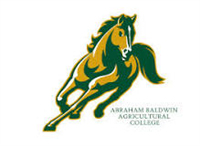What do they do?
Directly supervise and coordinate activities of workers engaged in landscaping or groundskeeping activities. Work may involve reviewing contracts to ascertain service, machine, and workforce requirements; answering inquiries from potential customers regarding methods, material, and price ranges; and preparing estimates according to labor, material, and machine costs.
Also known as:
Buildings and Grounds Supervisor, Field Manager, Golf Course Superintendent, Grounds Crew Supervisor, Grounds Foreman, Grounds Maintenance Supervisor, Grounds Manager, Grounds Superintendent, Grounds Supervisor, Groundskeeper Supervisor, Landscape Crew Leader, Landscape Foreman, Landscape Installation Foreman, Landscape Manager, Landscape Supervisor
-
-0.6%
Change
Ranks #64 in job growth rate540Job Openings
Ranks #23 in net job growth
Colleges with the most graduates that become First-Line Supervisors of Landscaping, Lawn Service, and Groundskeeping Workers
-
Texas A&M University-College Station
College Station, TX
-
Abraham Baldwin Agricultural College
Tifton, GA
-
Delaware Valley University
Doylestown, PA
-
Brigham Young University-Idaho
Rexburg, ID
-
Brigham Young University
Provo, UT
Looking for colleges that offer a specific major? Use the College Match Tool to find your best-matched schools and discover your estimated Net Price!
- Doctorate or Professional Degree (<1%)
- Master's degree (2%)
- Bachelor's degree (15%)
- Associate's degree (9%)
- Some college, no degree (21%)
- High school diploma equivalent (32%)
- Less than high school diploma (21%)
Most Popular Majors that prepare First-Line Supervisors of Landscaping, Lawn Service, and Groundskeeping Workers
-
#1
-
Degrees Granted
103
-
Female Students
50
-
Male Students
53
-
Median Starting Salary
$37,600
-
-
#2
-
Degrees Granted
92
-
Female Students
50
-
Male Students
42
-
Median Starting Salary
$37,600
-
-
#3
-
Degrees Granted
77
-
Female Students
4
-
Male Students
73
-
Median Starting Salary
$37,600
-
-
#4
-
Degrees Granted
32
-
Female Students
2
-
Male Students
30
-
Median Starting Salary
$38,200
-
-
#5
-
Degrees Granted
16
-
Female Students
5
-
Male Students
11
-
Median Starting Salary
$37,600
-
People in this career often have these skills:
- Monitoring - Monitoring/Assessing performance of yourself, other individuals, or organizations to make improvements or take corrective action.
- Time Management - Managing one's own time and the time of others.
- Active Listening - Giving full attention to what other people are saying, taking time to understand the points being made, asking questions as appropriate, and not interrupting at inappropriate times.
- Management of Personnel Resources - Motivating, developing, and directing people as they work, identifying the best people for the job.
- Speaking - Talking to others to convey information effectively.
- Critical Thinking - Using logic and reasoning to identify the strengths and weaknesses of alternative solutions, conclusions, or approaches to problems.
- Coordination - Adjusting actions in relation to others' actions.
People in this career often know a lot about:
- Customer and Personal Service - Knowledge of principles and processes for providing customer and personal services. This includes customer needs assessment, meeting quality standards for services, and evaluation of customer satisfaction.
- English Language - Knowledge of the structure and content of the English language including the meaning and spelling of words, rules of composition, and grammar.
- Administration and Management - Knowledge of business and management principles involved in strategic planning, resource allocation, human resources modeling, leadership technique, production methods, and coordination of people and resources.
- Mathematics - Knowledge of arithmetic, algebra, geometry, calculus, statistics, and their applications.
- Public Safety and Security - Knowledge of relevant equipment, policies, procedures, and strategies to promote effective local, state, or national security operations for the protection of people, data, property, and institutions.
- Personnel and Human Resources - Knowledge of principles and procedures for personnel recruitment, selection, training, compensation and benefits, labor relations and negotiation, and personnel information systems.
- Mechanical - Knowledge of machines and tools, including their designs, uses, repair, and maintenance.
People in this career often have talent in:
- Oral Comprehension - The ability to listen to and understand information and ideas presented through spoken words and sentences.
- Oral Expression - The ability to communicate information and ideas in speaking so others will understand.
- Problem Sensitivity - The ability to tell when something is wrong or is likely to go wrong. It does not involve solving the problem, only recognizing that there is a problem.
- Near Vision - The ability to see details at close range (within a few feet of the observer).
People in this career often do these activities:
- Establish work standards.
- Plan employee work schedules.
- Inspect buildings or grounds to determine condition.
- Inspect work to ensure standards are met.
- Supervise maintenance workers.
- Plant greenery to improve landscape appearance.
- Irrigate lawns, trees, or plants.
- Trim trees or other vegetation.
- Provide information about landscaping services or costs.
- Prepare chemicals for work application.
- Instruct staff in work policies or procedures.
- Estimate maintenance service requirements or costs.
- Inspect landscaping to determine treatment needs.
- Inventory materials or equipment.
- Document work hours or activities.
- Evaluate current or prospective maintenance employees.
- Investigate work related complaints to determine corrective actions.
- Confer with coworkers to coordinate maintenance or cleaning activities.
- Determine resource needs.
- Recommend organizational process or policy changes.
- Remove snow.
This page includes data from:

 Occupation statistics: USDOL U.S. Bureau of Labor Statistics Occupational Employment Statistics
Occupation statistics: USDOL U.S. Bureau of Labor Statistics Occupational Employment Statistics









